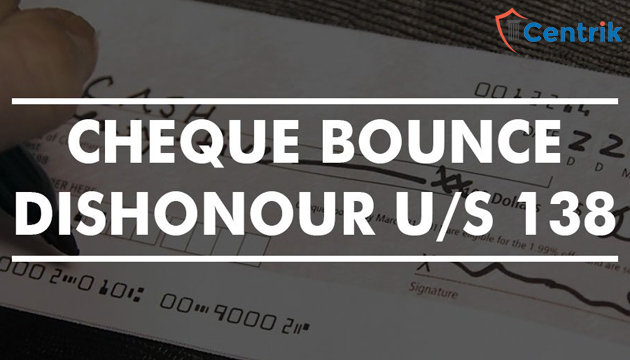
Status as on- 29/07/2021
Brief Facts of the Case
- The observations were made in an application filed under Section 482 of the CrPC, asking to dismiss Section 138 proceedings as non-est in law and directing the Complainant-Respondent to pursue their remedies under IBC.
- During the pendency of allegations about cheque dishonour, the Petitioner-company went through the Corporate Insolvency Resolution Process under Section 31 of the Code, and a moratorium was declared under Section 14 of the Code.
- The petitioner contended in court that because the Resolution Professional had taken over the full operation of the company, including its assets and liabilities, he had no access to any corporate data and thus couldn’t pursue the case.
- He contended that the IBC was a self-contained enactment with precedence over other laws. As a result, continuing the contested prosecution would be an abuse of legal procedure.
- In his submission, he also stated that the resolution plan clearly states that all outstanding negotiable instruments issued by the company prior to the insolvency commencement date shall be terminated, and the liability of the company and its current employees under such instruments shall be extinguished, as shall all legal proceedings relating thereto.
Held
The Hon’ble Madras High Court ruled as following:
- The Madras High Court ruled in Ajay Kumar Bishnoi v. Tap Engineering held that where proceedings under Section 138 of the Negotiable Instruments Act, 1881 have already begun and the company has been dissolved, the directors and other accused cannot avoid culpability by pleading the firm’s dissolution. Only the corporation is dissolved, not the accused’s personal penal culpability under Section 141 of the statute. It went on to say that once a corporate debtor enters the resolution process, its former managing director or directors are no longer allowed to represent the company.
- When comparing the criminal aspect of proceedings under the act and the insolvency provisions of the code as they effect the corporate debtor’s promoters and directors, the court noted that section 138 of the act provides not only for imprisonment but also for the payment of fines and compensation.
- A convicted person may face imprisonment, a fine of up to double the amount of the check, or both. A corporation, of course, cannot be imprisoned. However, under Section 141 of the legislation, the person in charge of the entity might be imprisoned. The amount of the punishment and compensation can also be recovered from the corporate debtor’s assets or from those of its directors and officers who were found guilty and vicariously liable in the same trial.
Impact of the Case
Justice Swaminathan held that the main object of Section 138 of the NI Act is to safeguard the credibility of commercial transactions and to prevent bouncing of cheques by providing a personal criminal liability against the drawer of cheque in public interest, said.
Therefore, even if the resolution plan was approved and made binding on the corporate debtor and its employees, members, creditors, guarantors and other stakeholders under Section 31 of the Code, criminal proceedings under Section 138 will not abate. In proving its point, the Court placed reliance on the case of JIK Industries Limited vs Amarlal V Jumani.
Conclusion
These petitions were submitted in accordance with Section 482 of the Cr. PC. The inherent powers of this Court are intended to be used only to prevent abuse of the legal process or to secure the goals of justice. The facts on record and the arguments advanced by the learned counsel for the petitioner do not lead to the conclusion that continuing the impugned prosecution would be an abuse of legal process. As a result, the Court declined to exercise its inherent powers under Section 482 of the Cr. PC in favour of the petitioner.
The Court determined that the major purpose of Section 138 of the NI Act is to protect the legitimacy of commercial transactions and to prevent cheque bouncing by imposing personal criminal liability on the drawer of the cheque in the public interest. As a result, even if the corporate debtor’s resolution plan was authorised and declared binding on the corporate debtor and its workers, members, creditors, guarantors, and other stakeholders under Section 31 of the Code, criminal proceedings under Section 138 will continue.
Source-
Ajay Kumar Bishnoi V/s M/s. Tap Engineering
(MADRAS HIGH COURT Judgment dated 09.01.2020 in Crl OP(MD)No.34996 of 2019)
Disclaimer – The above article is based on interpretation of the related judicial pronouncement and related laws which may differ person to person. The readers are expected to take expert opinion before placing reliance on it. For more information, please reach us at support@centrik.in or call us at 8383011629




 join For Updates
join For Updates